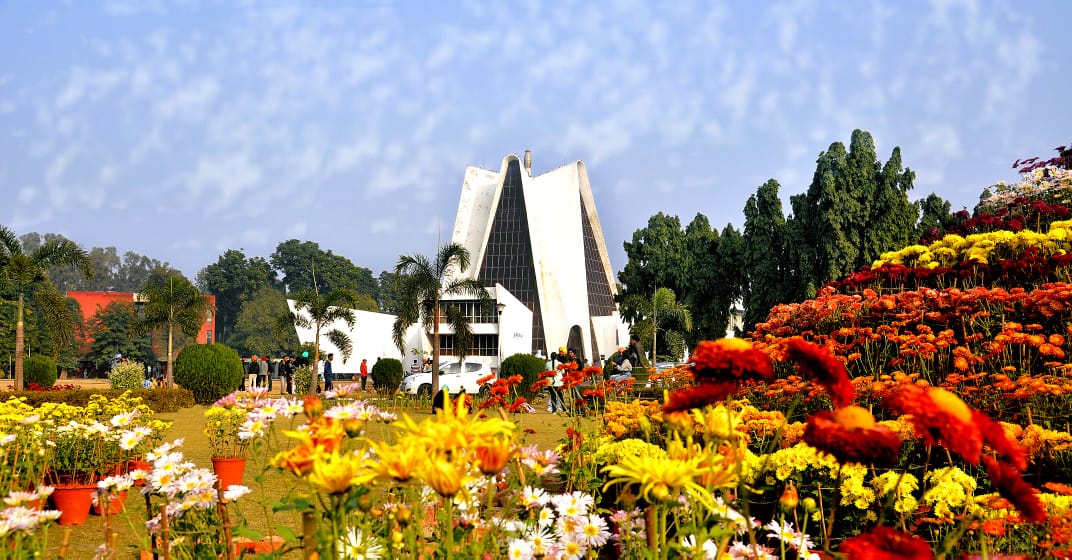Software tool for accurate identification of rice varieties through digital imaging developed by Punjabi University scholars
Kanwar Inder Singh/ April 2,2023
Under the joint Supervision and strong initiative of Dr. Ganesh Kumar Sethi and Dr. Rajesh Kumar Bawa, Ph.D. researcher, Komal Sharma of the Department of Computer Science, Punjabi University, Patiala has developed a web-based tool named ARVIS, (Automatic Rice Variety Identification System), that is capable of identifying and classifying the varieties of rice through digital imaging of rice seeds or grains of which are being grown in Punjab using the Machine Learning approach. Highlighting the importance of the research work, Dr. Ganesh Kumar Sethi, Assistant Professor, Multani Mal Modi College, Patiala stated that by using machine learning to identify the visual characteristics of different rice varieties, it is possible to verify the authenticity of rice products. This can help to prevent fraud and ensure that consumers are getting what they paid for. In future, the tool can be helpful in Breeding Programs also which means it can help to develop new varieties of rice that are more resistant to diseases, pests, and climate change. It has been reported that they have also filed a patent for this research work in the Indian Patent Office and published research papers in the reputed journals. For the research carried out the Research Scholar has also got Best Paper Award in International Conference on innovative and Research in Marine Electrical and Electronics Engineering held in 2021 in Chennai.
Further, Dr. Rajesh Kumar Bawa, Professor, Punjabi University, Patiala and Co-Supervisor said that the identification of rice varieties is a challenging task that requires precise image analysis techniques. The research scholar has been able to overcome this challenge by developing an innovative approach that uses machine learning algorithms to identify and classify different rice varieties based on their morphological, texture and color characteristics.
Highlighting the importance of this research, Research scholar, Komal Sharma, stated that the identification of rice varieties is critical for ensuring the authenticity of rice products in the market. The major challenge faced for the development of ARVIS was the non-availability of a public benchmark image dataset of rice varieties of Punjab. To accomplish this challenge an image dataset (RAks: where R means Rice and Aks is a hindi word which means image) was created for all the varieties commonly grown in different regions (Doaba, Majha, and Malwa) of Punjab. The rice samples were collected from Seeds Department, Punjab Agricultural University (PAU), Ludhiana and from different authenticated seeds stores of Punjab to perform experiments and to classify various rice varieties of Punjab from the acquired images.

The dataset comprises more than 6 lac images of 22 rice varieties (7 basmati paddy seed varieties, 12 Parmal paddy seed varieties, and 3 other paddy seed varieties) grown in Punjab. The collected dataset also provides research community a bench mark dataset in the field of rice variety identification and research in the allied areas. She further explained that their research can benefit the agriculture sector, consumers, and the environment. The development of such kind of research is a significant contribution to the field of computer vision and has the potential to revolutionize the way we produce and consume rice products. This research has been shown to be highly effective in identifying and classifying different varieties of rice found in Punjab with an accuracy rate of over 97.05%. This system can process high-resolution images of rice samples and compare them to a comprehensive database of known varieties to determine the correct classification.
Prof. Arvind, vice chancellor, PUP appreciating this research, congratulated the team. He said that conducting such exclusive research for the better solution of such problems at the grassroots level shows the speciality of Punjabi University, and on the other hand, such researches also play their role in building the complete image of the University. He said that this research can benefit various sectors apart from the agricultural sector, rice consumers and the environment. In the future, Punjabi University will be known with reference to such researches, then the stature of this institution will be seen even bigger, he added.
(royalpatiala.in News)











